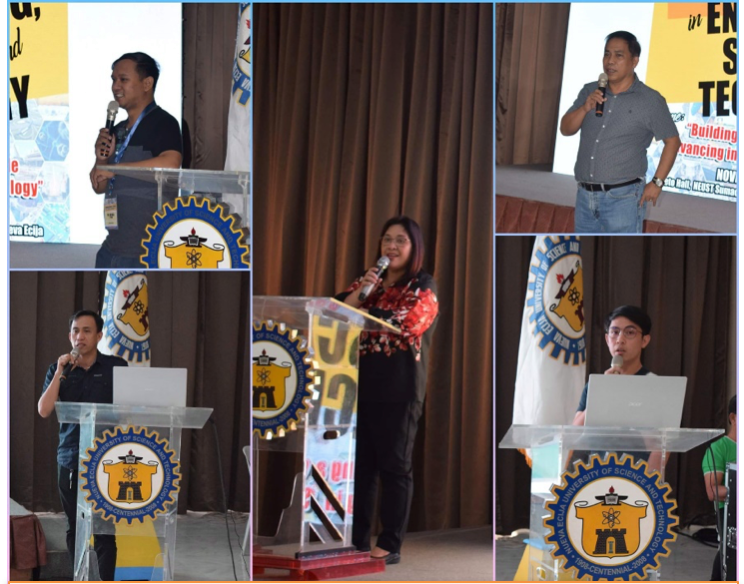Organization
Nueva Ecija University of Science and Technology (NEUST)
Best Practice Focus Area/s
Strategy
Year Implemented
2007 to present
This is a GBPR entry
Summary
The NEUST and LGU partnership as affirmative action towards greater access to education for poor but deserving students was adopted as a major strategy for the university and the LGUs concerned, aligning with the SDG to achieve universal quality education. This partnership aims to reach those who cannot access formal education by bringing the university closer to their locality.
This university strategy is also in accordance with the desire of local chief executives to help their constituents produce more professionals in the family so they can help their families improve their quality of life. To pursue this end, NEUST partnered with the municipalities of Careranglan, Talavera, San Leonardo, Peñaranda, Gen Tino and San Antonio, and the City of Gapan. Programs offered are Bachelor of Information Technology, Bachelor of Hotel and Restaurant Management, Bachelor of Secondary Education, Bachelor of Science in Business Administration, and Bachelor of Elementary Education. Aside from these course offerings, the Accelerated Vocational-Technical Program is also offered on these campuses.
Background and Problem
As producers of knowledge and hubs of innovations, it is paramount that academic institutions deliver affirmative actions to their stakeholders to deliver development goals. Affirmative action policies guarantee the admission of students belonging to minority groups in higher education since, according to Greenawalt (1983): ‘Affirmative action is a phrase that refers to attempts to bring members of underrepresented groups, usually groups that have suffered discrimination, into a higher degree of participation in some beneficial program’. Many academic institutions, particularly at the tertiary levels, are engaged in various collaborations with different community partners.
In line with this, the Commission on Higher Education (CHED) recognizes a pertinent provision of Republic Act 7160, otherwise known as the Local Government Code of 1991 for Municipalities, Article 3, Section 447, par (5) (x) “subject to the availability of funds and existing laws, rules and regulations, establish and provide for the operation of vocational and technical schools and similar post-secondary institutions and, with the approval of the Department of Education, Culture and Sports, fix and collect reasonable fees and other school charges on said institutions, subject to existing laws on tuition fees.
With the Nueva Ecija University of Science and Technology, the Administrators, from the deceased Dr. Gemiliano C. Calling to Dr. Hilario C. Ortiz and currently under the administration of Dr. Feliciana P. Jacoba, have partnered with six (6) municipalities and one (1) city in the province for the establishment of academic extension campuses of the university. Said partnerships intend to make education accessible to the residents and constituents of neighboring towns who would like to access educational opportunities under the academic extension program similarly offered in all partner municipalities.

Solution and Impact
Generally, all partner LGUs of NEUST agreed (through a MOA) to sustain collaboration with the university by providing a venue from which Accelerated Vocational Training Program (AVTP) and other degree programs may be offered. Moreover, partner LGUs are committed to providing the necessary infrastructures, complete with classrooms, laboratories, offices, libraries, and other ancillary facilities required of an academic campus to serve as a venue for the academic undertakings of the NEUST in the different loci of operation.
As agreed, the facilities made available by the partner LGUs are for the exclusive use of the university. All academic extension campuses established under this arrangement are under the university’s full administrative and academic supervision and control. Specifically, it was agreed that the university should take charge of the following major activities, to wit:
- Hiring and selection of officials and personnel;
- Hiring and selection of faculty members;
- Design and implementation of curriculum for each program;
- Issuance of Transcript of Records (TOR) and Diplomas;
- Issuance of grades;
- Safekeeping and maintenance of records through the Office of the Registrar;
- Implementation and enforcement of the university retention policy for academic deficiencies;
- Issuance of identification cards;
- Guidance and counseling services; and
- Collection of tuition and other fees as prescribed by the university shall be spent to defray expenses.
The responsibilities of the LGUs are as follows:
- Construction of buildings, laboratory, library, offices, and other facilities;
- Maintenance of all the facilities in accordance with the building code of the Philippines;
- Provision of subsidy for the honorarium of the university’s administrators and officials directly responsible for the administration of the program;
- Provision of the honoraria of the faculty members of the University subject to the rate prescribed by the university as stipulated in the TOR;
- Provision of subsidy for payment of water, electric, and telephone/internet bills;
- Provision of all necessary office supplies and other needs in the classrooms and offices; and
- Close collaboration with the university to ensure quality education.
Milestones/Next Steps
The following are the dates of implementation:
- Gapan City – 24 May 2007
- San Leonardo, Nueva Ecija – 8 July 2008
- Pe̱aranda, Nueva Ecija Р03 March 2011
- San Antonio, Nueva Ecija – 26 June 2012
- Talavera, Nueva Ecija – 11 July 2012
- Carranglan, Nueva Ecija – 21 March 2013
Since the partnership was forged between NEUST and the concerned LGUs, the following have been notable milestones: the university produced a total of 19,505 graduates; has established six (6) academic extension campuses; produced one (1) top notcher in the LET, and constructed school buildings and other facilities.
